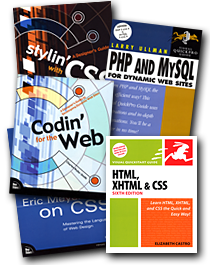|
This is the pitch. websites.that.connect offer something you won't get from other web developers. Either because they don't have the resources, or they don't attach that much importance to it. I'll explain. |
 |
Design - visits should be as pleasant and productive as possible |
 |
HTML authoring - it never stops changing |
 |
Wordsmithery - if they like what they read, they'll like you |
|
A word about search engine optimisation. As a matter of course, I employ numerous techniques to help rank you ahead of your competition with Google, Bing, DuckDuckGo and the rest. They involve all three components - design, HTML5 coding and copywriting. And some are not all that widely known among other developers. Mind you, the search engine people never stop refining their algorithms, so staying ahead can become somewhat problematic. |